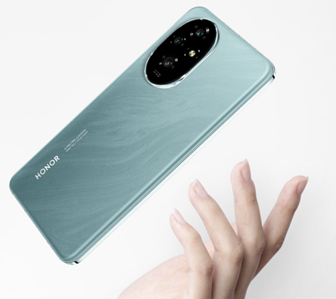8 Useful Tips to Keep User Privacy and Security on Smartphones
With smartphones becoming an integral part of our daily lives, ensuring user privacy and security is more important than ever. So how to keep user privacy and security when using smartphones? In this article, we'll provide some tips to help users protect their data and personal information.

1. Use Strong, Unique Passwords
It's essential to use strong, unique passwords for your smartphone and any apps or accounts you access on it. Avoid using easily predictable passwords such as "123456" or "password" and think about using a password manager to create and store intricate passwords securely. Additionally, enable two-factor authentication (2FA) where possible to add an additional layer of security.
2. Keep Your Software Up to Date
It's essential to update your smartphone's OS and software regularly to maintain security. Updates often contain effective fixes for known vulnerabilities that could be exploited by attackers. Set your device to automatically install updates whenever possible to ensure you're protected against the latest threats.
3. Be Cautious with App Permissions
When installing new applications, be mindful of the permissions they request. Some apps might ask for excessive access, potentially jeopardizing your privacy. Review and modify app permissions in your device settings to restrict the information apps can access. Additionally, consider using privacy-focused apps and services to minimize data collection.
4. Enable Find My Phone Feature
Most smartphones, including the new HONOR 200, offer a "Find My Phone" feature that allows you to locate your device if it's lost or stolen. Make sure this feature is enabled and set up on your device. In the event that your phone goes missing, you can use this feature to track its location, remotely lock or erase it, and protect your data from unauthorized access.
5. Use Secure Wi-Fi Connections
When connecting to Wi-Fi networks, particularly those in public settings, it's important to verify that they are secure and trustworthy. Avoid connecting to unsecured networks or ones with generic names such as "Free Wi-Fi," as these can be exploited by malicious actors to intercept your data. Consider using a virtual private network (VPN) for an extra layer of encryption when connecting to public Wi-Fi networks.

6. Enable Biometric Authentication
Biometric authentication methods such as fingerprint or facial recognition are more secure than traditional PINs or passwords. Enable biometric authentication on your smartphone to ensure only you can access your device and sensitive information. Additionally, avoid using easily replicable biometric features, such as a photo for facial recognition, to enhance security.
7. Use Encrypted Messaging Apps
For sensitive communications, use encrypted messaging apps that offer end-to-end encryption. These apps ensure that your messages are secure and cannot be intercepted or read by anyone other than the intended recipient. Popular encrypted messaging apps include Signal, WhatsApp, and Telegram.
8. Regularly Back Up Your Data
Regularly backing up your smartphone's data ensures that you won't lose important information in the event of a security breach or device failure. Use cloud storage services or external hard drives to back up your data regularly and securely. This practice also allows you to easily restore your data if you need to reset your device or switch to a new one.
Conclusion
Ensuring user privacy and security on smartphones is paramount in today's digital age. By following these tips and utilizing the security features offered by devices like the HONOR 200, you can protect your personal information and use your smartphones safely and securely. Remember to stay vigilant and proactive about security to safeguard your data and privacy effectively.








